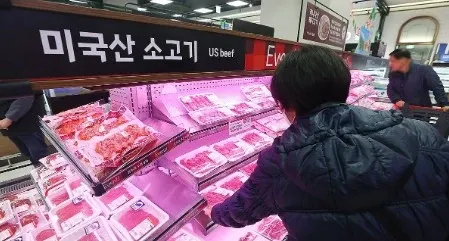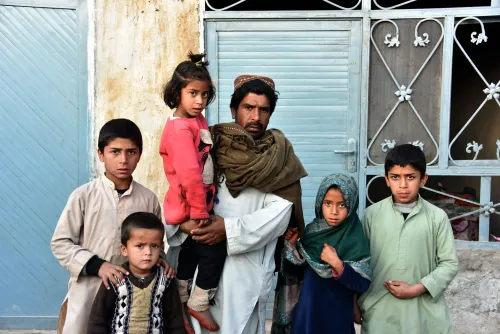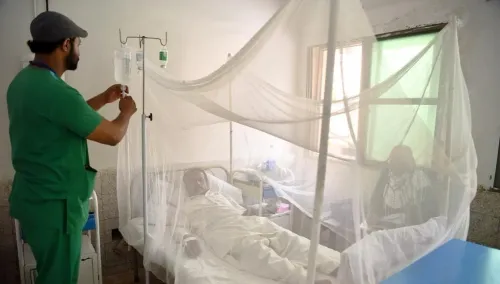Will South Korean Farmers Unite Against US Agro Market Openings?

Synopsis
Key Takeaways
- Farmers are rallying against potential market openings.
- Collective action is a serious threat if negotiations proceed unfavorably.
- US agricultural imports have significantly increased due to tariff reductions.
- Trade Minister acknowledges the pain of negotiations.
- Negotiations hinge on sensitive agricultural issues.
Seoul, July 18 (NationPress) Local farmers' organizations have escalated their demands for the safeguarding of South Korea's agricultural and livestock sectors amid ongoing tariff discussions with the United States, warning of collective action if the government agrees to further liberalize the country's agro-livestock market as a bargaining tool.
In a bold move, four farmers' advocacy organizations, including the federation of Korean agricultural and livestock associations, convened for a press conference outside the presidential office in central Seoul, calling on the government to refrain from compromising the Korean agricultural and livestock industries in pursuit of a trade agreement with the US, as reported by Yonhap News Agency.
"We will not remain passive if the government eliminates tariffs and non-tariff barriers on agricultural and livestock products without farmers' approval," the groups stated in a joint declaration.
"Should such a decision occur, we will initiate widespread collective action to guarantee the sustainability of Korea's agriculture and uphold the health rights of 50 million Korean citizens," the statement continued.
The agricultural and livestock sectors have surfaced as particularly sensitive topics in the ongoing tariff negotiations between Seoul and Washington, with the US urging Korea to reconsider various non-tariff measures, including its ban on American beef from cattle over 30 months of age due to mad cow disease concerns.
In a recent report addressing foreign trade barriers, the US Trade Representative (USTR) also criticized Korea's regulatory framework for agricultural biotechnology, including living modified organisms (LMOs), and stringent regulations on agrochemical residues in imported agricultural products.
Opposition erupted from the Korean agricultural and livestock sectors following Trade Minister Yeo Han-koo's comments to reporters expressing that trade negotiations in these sectors "always come with pain," although he suggested that strategic trade-offs could be considered for a broader agreement with the US, potentially enhancing industry competitiveness in the future.
Yeo's statements followed his visit to Washington, where he engaged in trade discussions with USTR Jamieson Greer, US Commerce Secretary Howard Lutnick, and other officials.
"South Korea ranks as the fifth-largest importer of American agro-livestock products," the farmers' groups noted, highlighting a 56.6 percent increase in imports of US agricultural and livestock goods over the last 15 years, attributed to reduced tariffs under the bilateral free trade agreement that commenced in 2012.
"Utilizing agricultural and livestock markets as bargaining chips amidst a deteriorating trade balance effectively indicates the government's neglect of local industries," they added.
"If our market is further liberalized, US agricultural and livestock products will flood in, exerting additional pressure on the domestic market and jeopardizing the foundation of South Korea's agricultural production."









